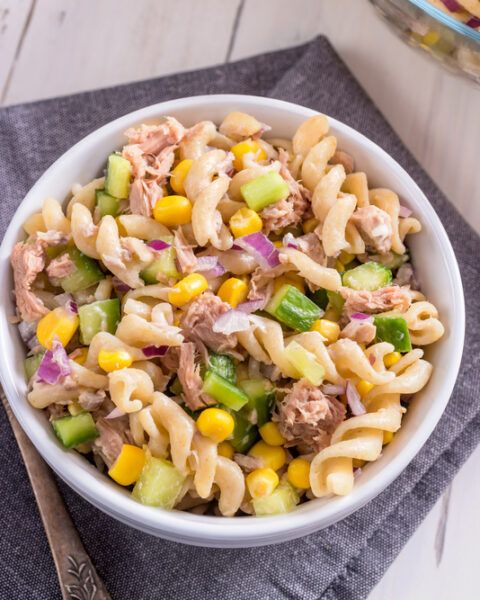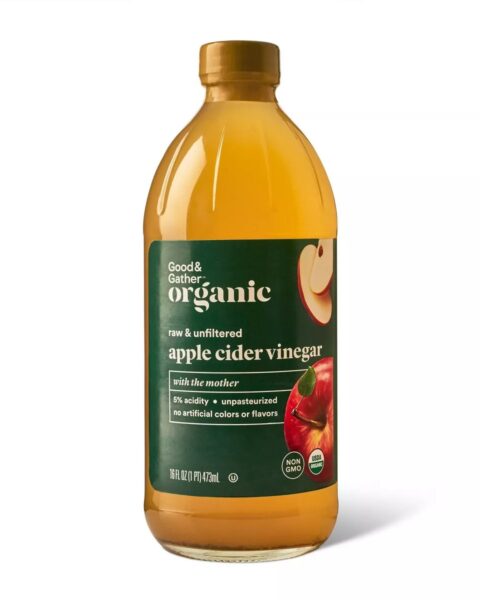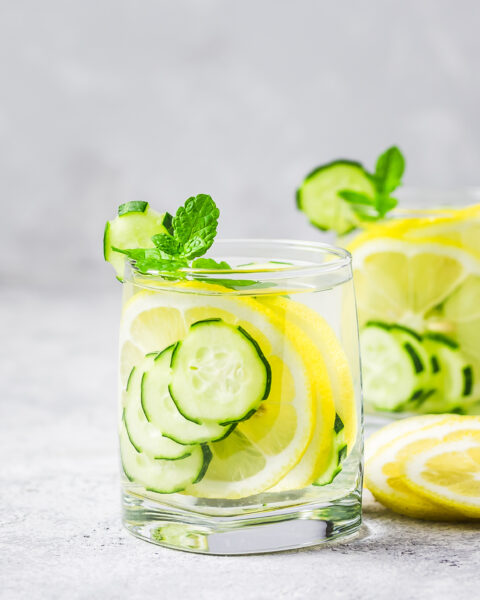When it comes to plant-based eating, the age-old question is always, “But where do you get your protein?” Well, forget the protein panic—plants are here to prove they’re more than just leafy greens. Packed with as much power as any steak or egg, these 15 plant-based ingredients will not only fill you up but keep you fueled and feeling fantastic.
Contents
Lentils
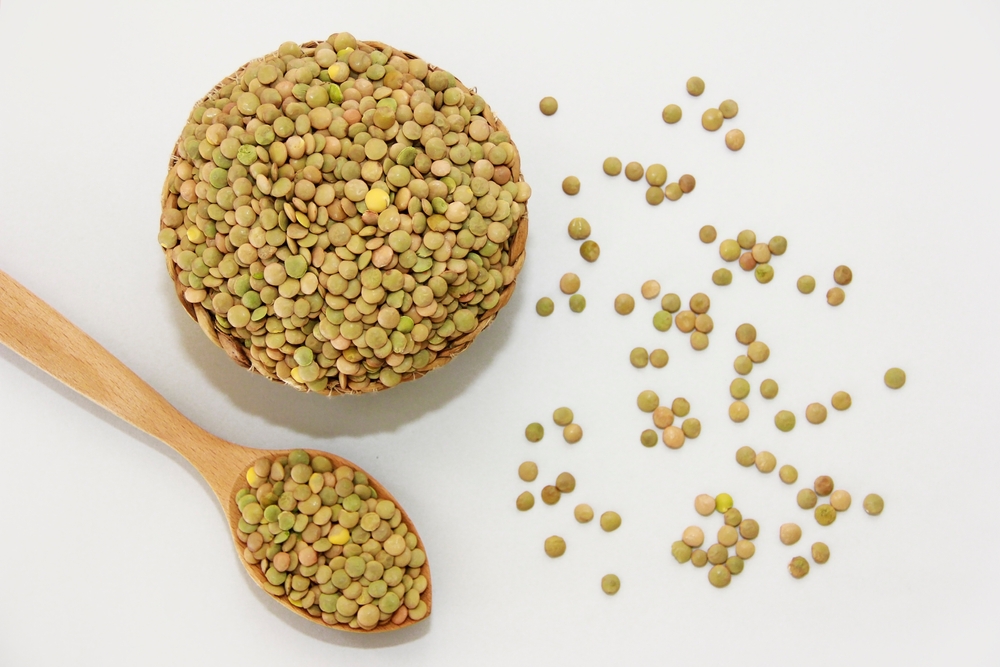
Lentils are a versatile legume, boasting around 18 grams of protein per cooked cup. They’re also packed with fiber, iron, and folate, making them a nutrient-dense option for plant-based eaters. Lentils are easy to cook and adapt to various dishes, from soups to salads and stews. Because they absorb flavors well, lentils can be spiced and flavored to suit any cuisine. Their affordability and long shelf life make them a staple in many kitchens, especially for those focusing on protein-rich plant-based meals.
Chickpeas
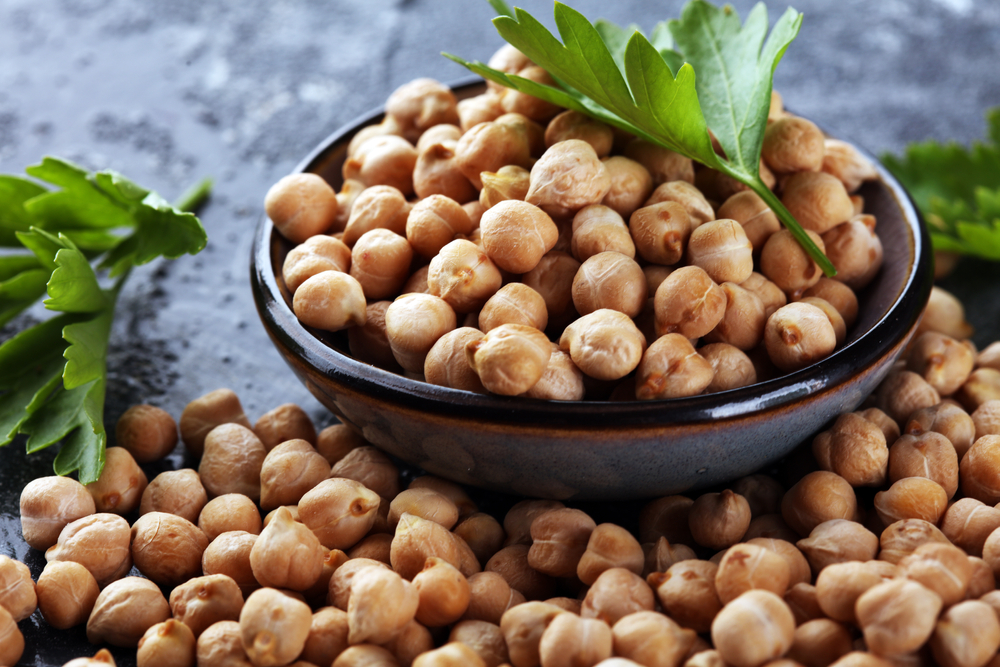
Chickpeas, also known as garbanzo beans, offer about 14.5 grams of protein per cooked cup. They’re a key ingredient in many Mediterranean dishes, such as hummus and falafel, and they provide a hearty base for salads, soups, and stews. Chickpeas are not only rich in protein but also high in fiber, helping to promote digestive health and keep you full for longer. Roasting them creates a crispy snack, while blending them makes creamy sauces or dips. Their mild flavor allows them to pair well with a variety of herbs and spices.
Quinoa
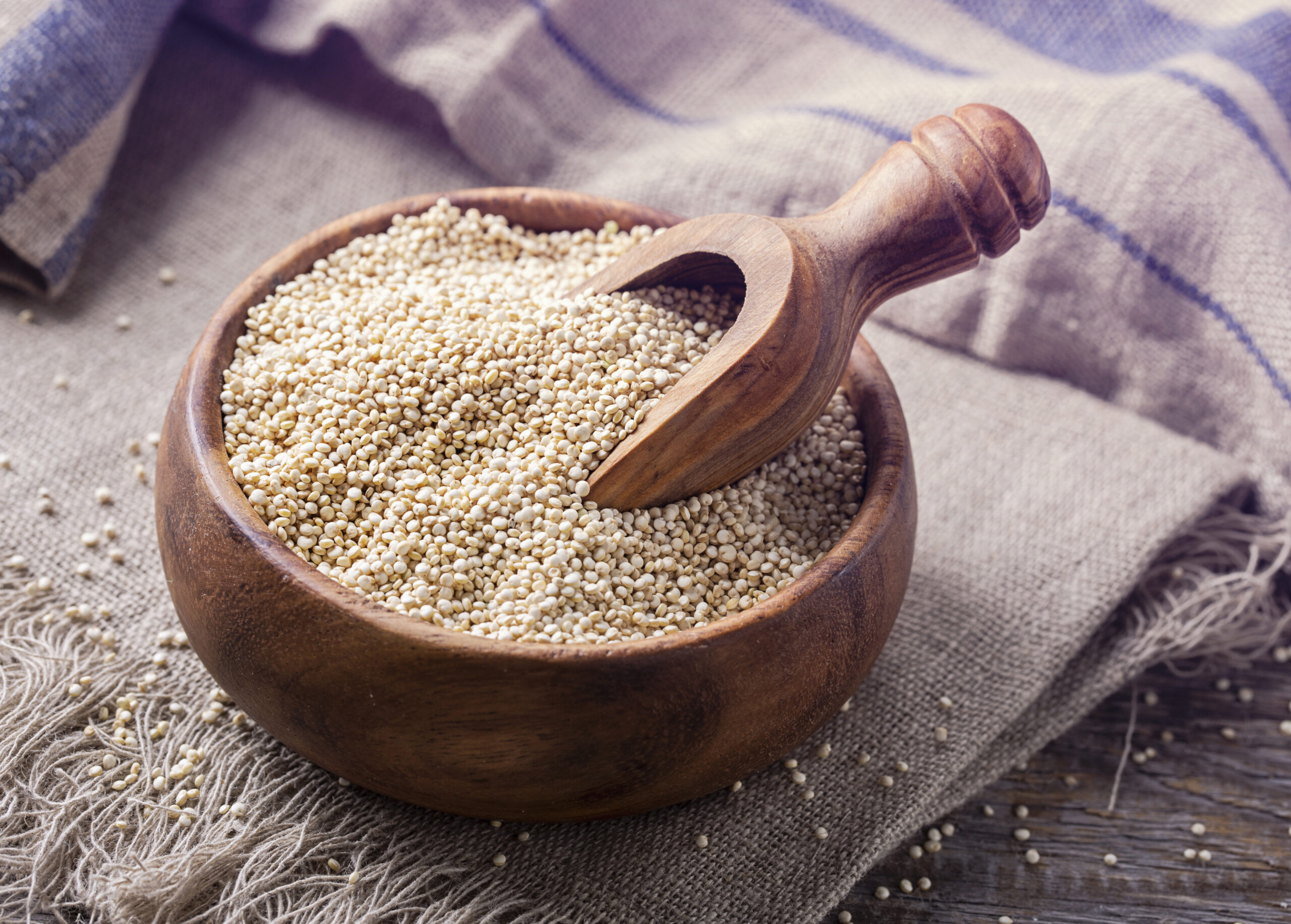
Quinoa is often referred to as a “complete protein” because it contains all nine essential amino acids, offering 8 grams of protein per cooked cup. This grain-like seed is gluten-free, making it an excellent option for those with dietary restrictions. Quinoa cooks quickly and can be used in place of rice or couscous in many recipes, from breakfast bowls to savory salads. It also provides a good source of magnesium, iron, and fiber, contributing to overall health. With its nutty flavor and chewy texture, quinoa easily enhances both hot and cold dishes.
Chia Seeds
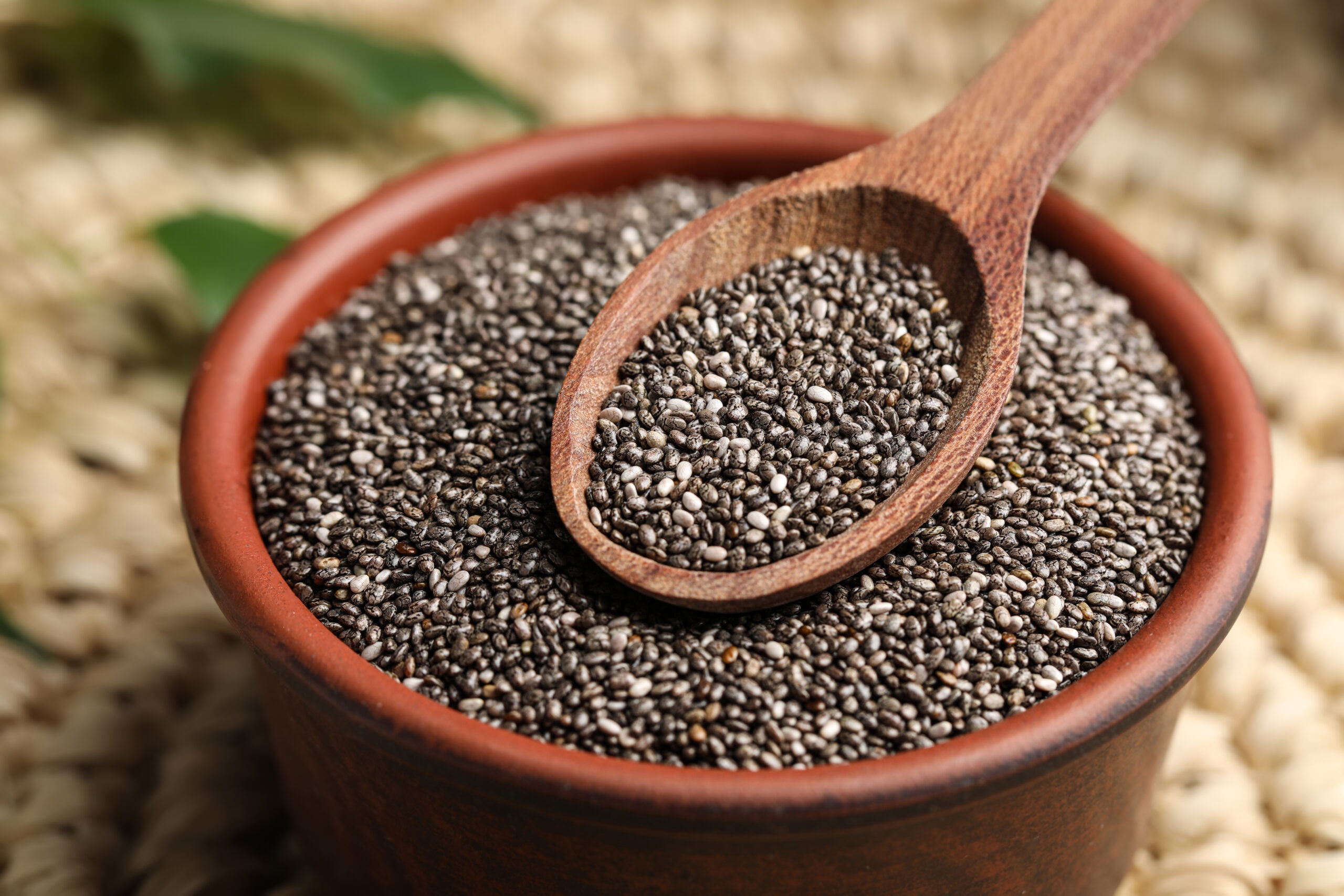
Chia seeds may be small, but they pack a protein punch with around 4.7 grams per ounce, making them a great addition to smoothies, yogurts, and baked goods. They’re also a rich source of omega-3 fatty acids, which support heart health, and fiber, which aids digestion. Chia seeds can absorb up to 12 times their weight in water, creating a gel-like consistency that makes them ideal for puddings or as a vegan egg substitute in recipes. Their mild, nutty flavor allows them to blend seamlessly into both sweet and savory dishes. Plus, they’re an excellent source of calcium and antioxidants.
Tofu
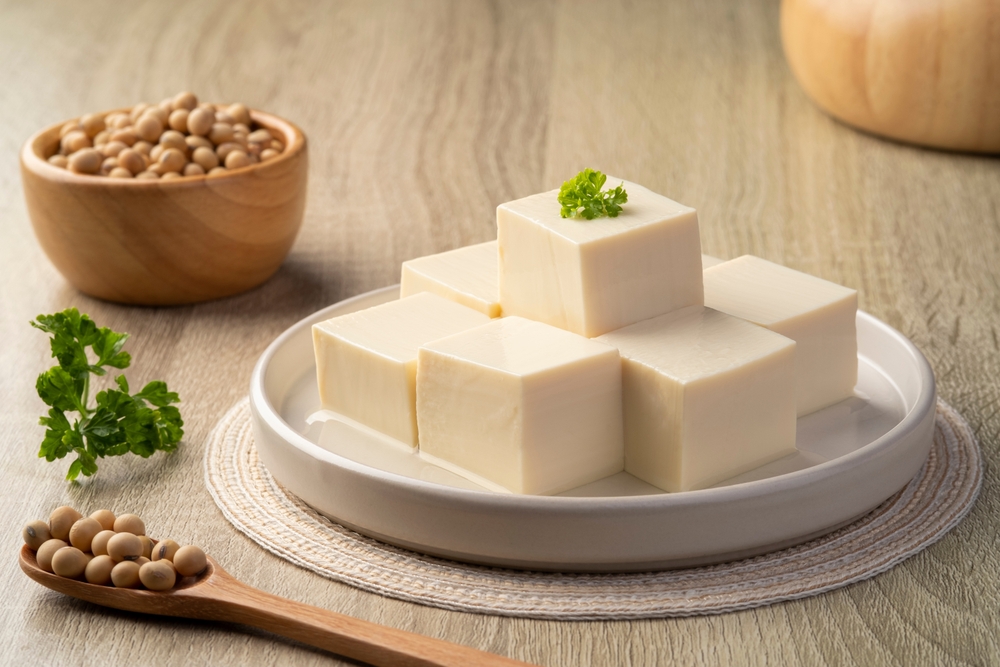
Tofu, made from soybeans, is a plant-based protein powerhouse with about 10 grams of protein per half-cup serving. It’s incredibly versatile, absorbing the flavors of whatever it’s cooked with, making it a popular meat substitute in stir-fries, soups, and even desserts. Tofu also contains all nine essential amino acids, making it a complete protein source. Available in various textures—from silken to extra-firm—it can be used in a wide range of dishes, from smoothies to savory meals. Its high protein content, along with its calcium and iron levels, makes tofu a favorite among plant-based eaters.
Tempeh
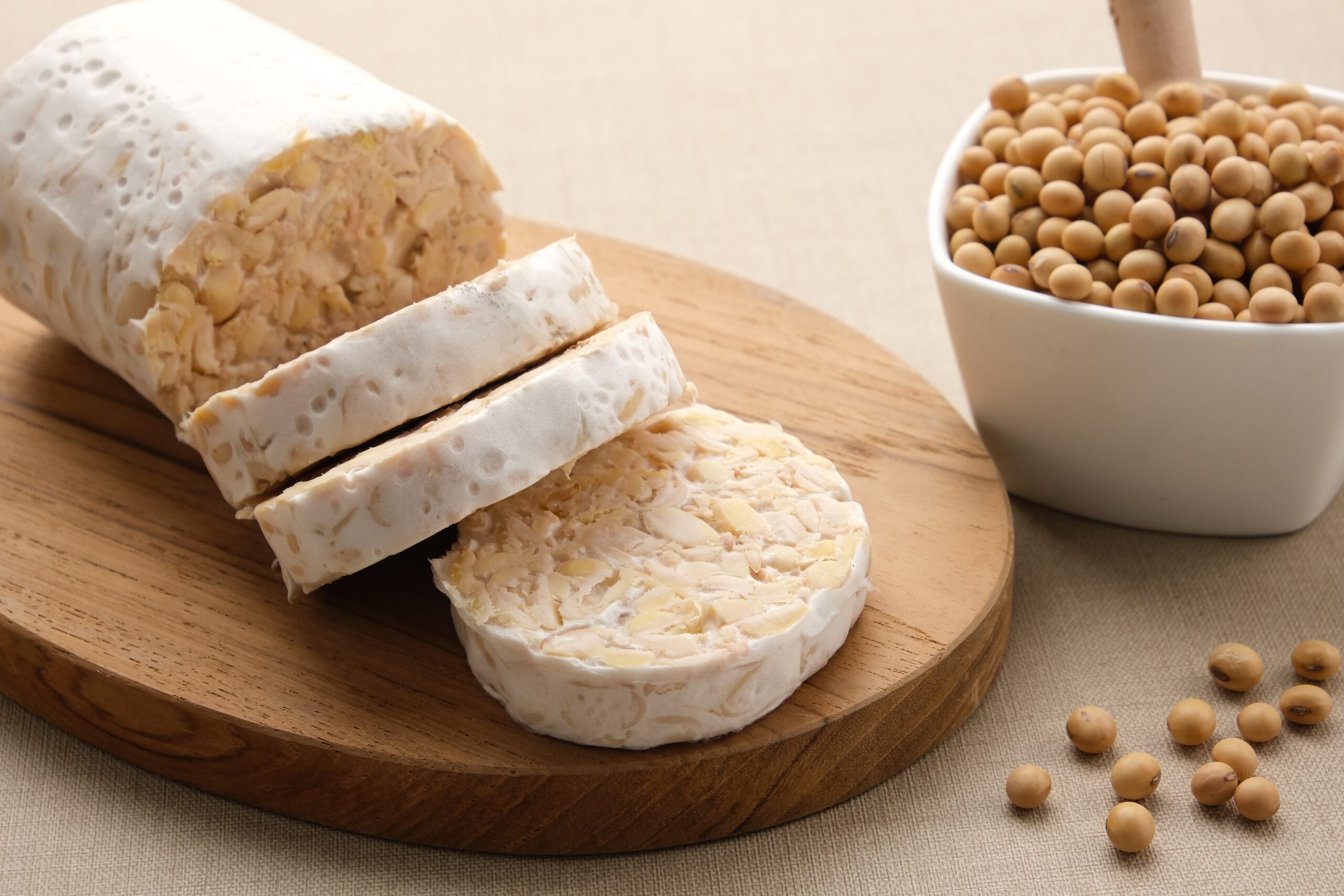
Tempeh, a fermented soybean product, offers even more protein than tofu, with about 21 grams per 4-ounce serving. The fermentation process also makes tempeh easier to digest, and it’s packed with probiotics that support gut health. Tempeh has a firm texture and a nutty flavor, making it a great substitute for meat in sandwiches, stir-fries, or salads. It’s also rich in nutrients like iron, calcium, and magnesium. With its hearty consistency, tempeh works well marinated and grilled or sautéed for a protein-packed addition to any meal.
Edamame
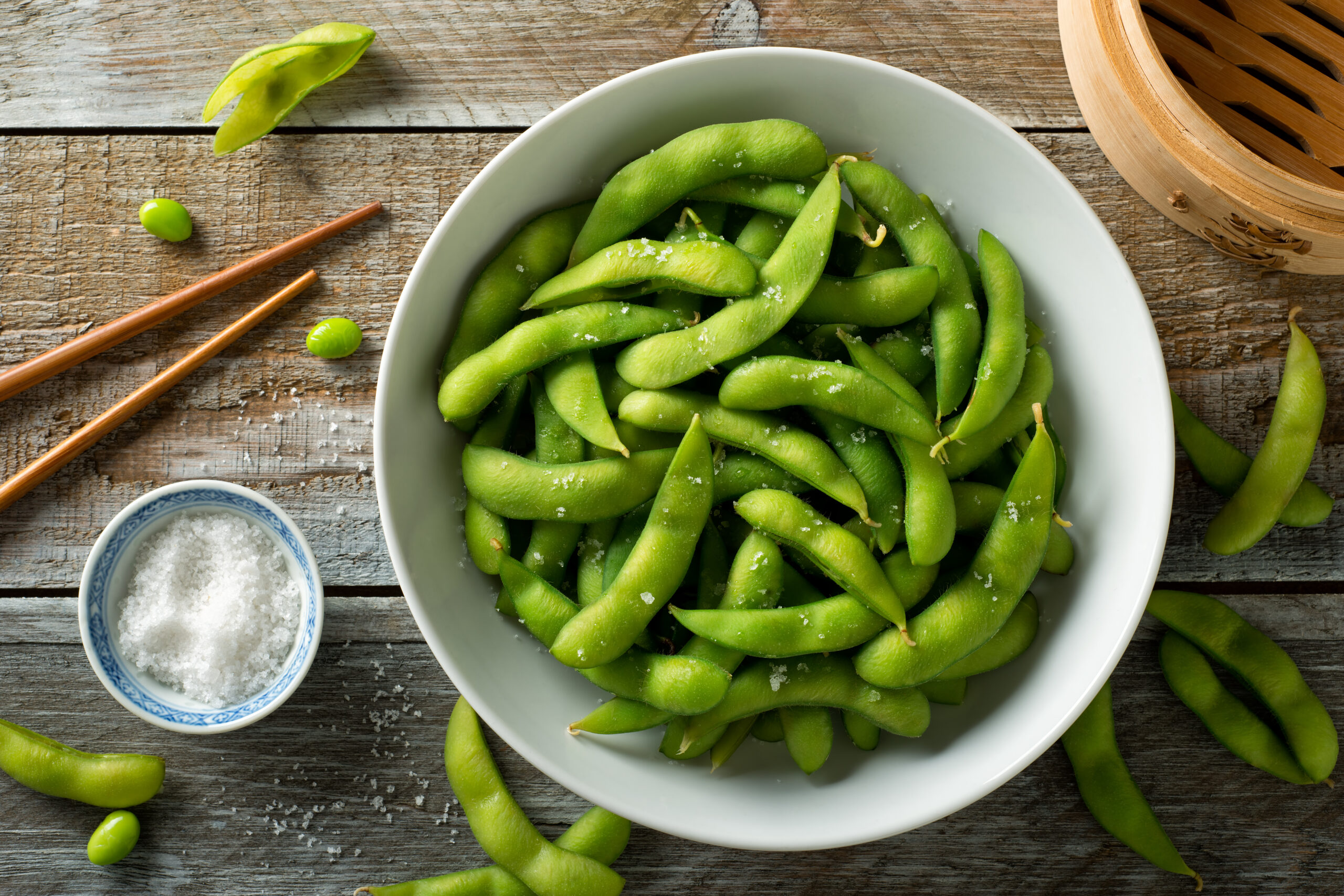
Edamame, or young soybeans, are another excellent source of plant-based protein, offering around 18 grams per cooked cup. They are typically served steamed in their pods, often sprinkled with sea salt, making them a popular snack in many Asian cuisines. Edamame is not only high in protein but also rich in fiber, vitamins, and minerals like folate and vitamin K. They make a great addition to salads, grain bowls, or stir-fries. As a whole food, edamame offers a fresh, green flavor that pairs well with a variety of seasonings.
Hemp Seeds
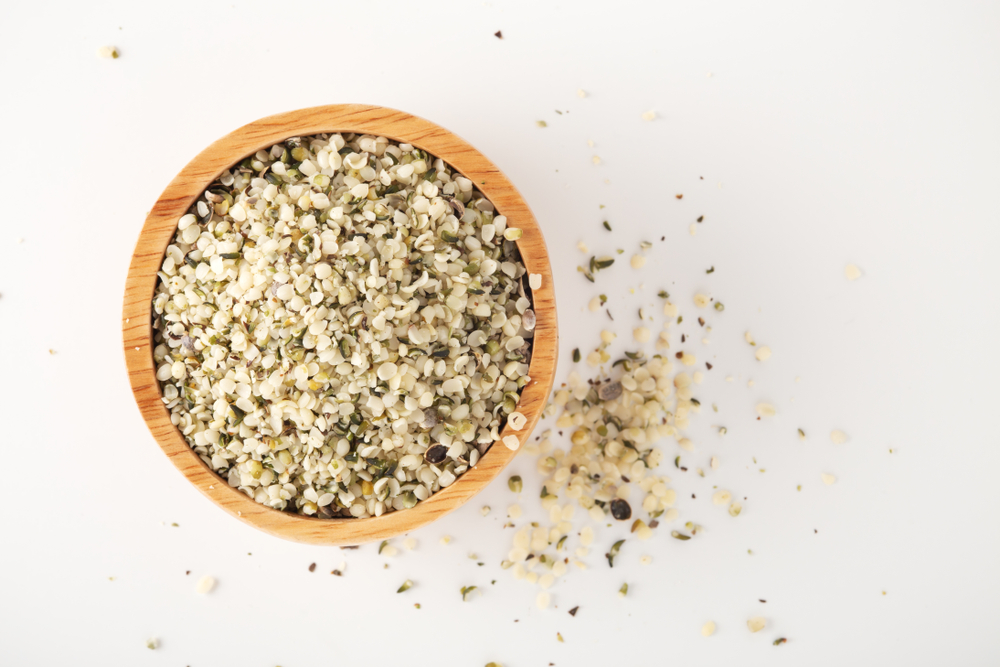
Hemp seeds are another complete protein source, containing about 10 grams of protein per 3-tablespoon serving. They are also a fantastic source of omega-3 and omega-6 fatty acids, promoting heart and brain health. Hemp seeds have a mild, nutty flavor and a soft texture, making them easy to sprinkle on top of salads, smoothies, or yogurt. They’re also a good source of magnesium, iron, and zinc. Because of their balanced nutritional profile, hemp seeds are a great addition to any plant-based diet.
Black Beans

Black beans are a protein-packed legume with around 15 grams of protein per cooked cup. Their dense texture and rich flavor make them a versatile ingredient in a variety of dishes, from soups and stews to burritos and salads. In addition to protein, black beans are rich in fiber, which aids digestion and helps regulate blood sugar levels. They also provide iron and magnesium, important nutrients for energy production and muscle function. Whether you’re making a bean salad or blending them into a dip, black beans are a nutritious, protein-rich choice.
Almonds
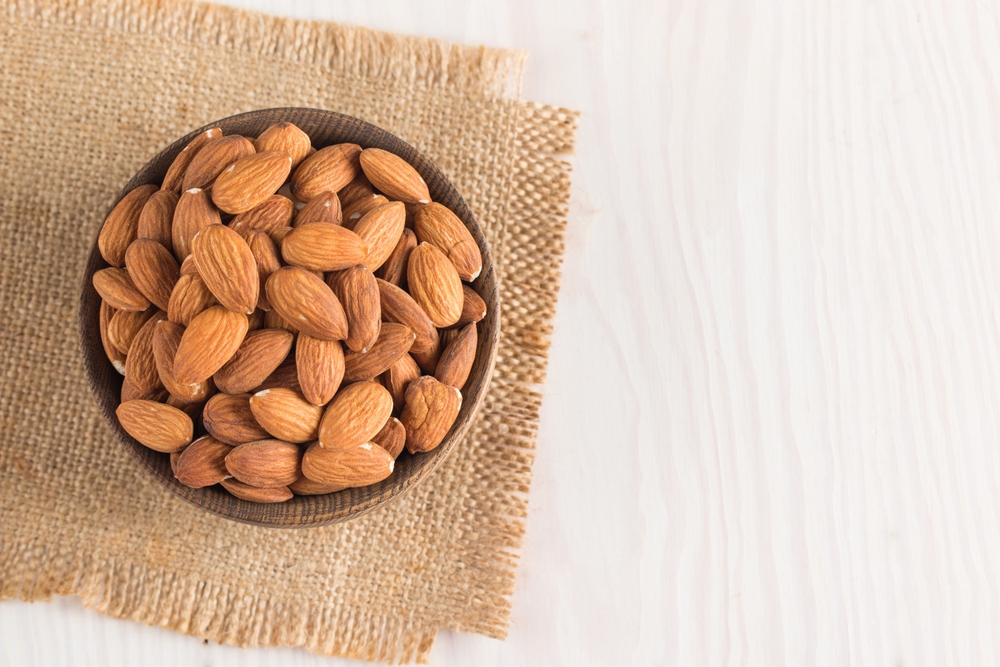
Almonds are one of the highest-protein nuts, with about 6 grams of protein per ounce. They’re also an excellent source of healthy fats, fiber, and vitamin E, making them a well-rounded snack. Almonds can be enjoyed raw, roasted, or used to make almond butter, which can be spread on toast or added to smoothies. They’re also great for making plant-based milk or flour for baking. The nutrient density of almonds makes them a go-to for a protein-rich, heart-healthy snack or ingredient in various dishes.
Seitan
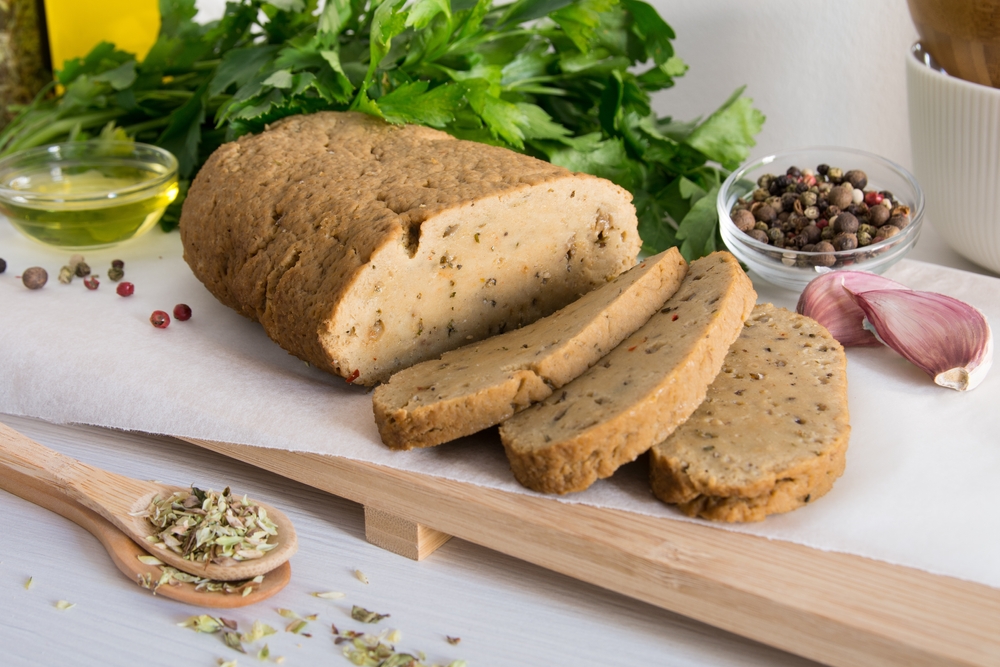
Seitan, also known as wheat gluten, is one of the highest plant-based protein sources, offering around 21 grams per 3-ounce serving. It has a dense, chewy texture that closely mimics meat, making it a popular option for vegetarians and vegans. Seitan can be seasoned and cooked in a variety of ways, from stir-frying to grilling or baking. Because it absorbs flavors well, seitan can be easily adapted to different cuisines, from Asian to Mediterranean. While it’s rich in protein, seitan is not suitable for those with gluten sensitivities or celiac disease.
Peas
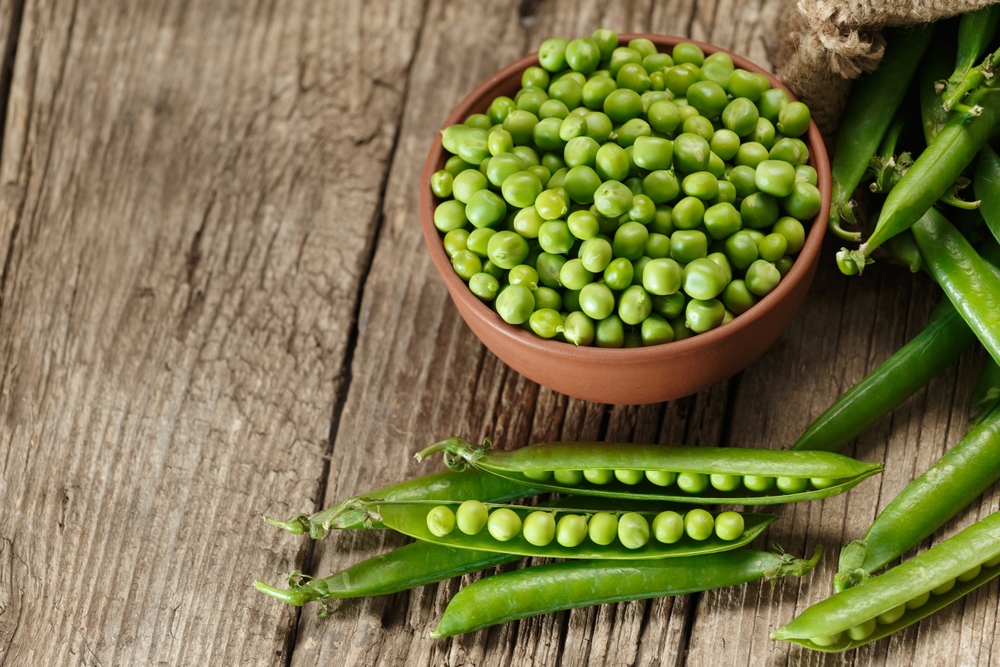
Green peas may seem like a humble vegetable, but they pack a solid protein punch with about 8 grams per cooked cup. They’re also a great source of vitamins A, C, and K, as well as fiber, which aids in digestion and keeps you full. Peas can be blended into soups, added to pasta dishes, or used as a side dish to boost the protein content of a meal. Frozen peas are particularly convenient and retain most of their nutrients when cooked. Their slightly sweet flavor pairs well with a wide variety of seasonings and dishes.
Amaranth
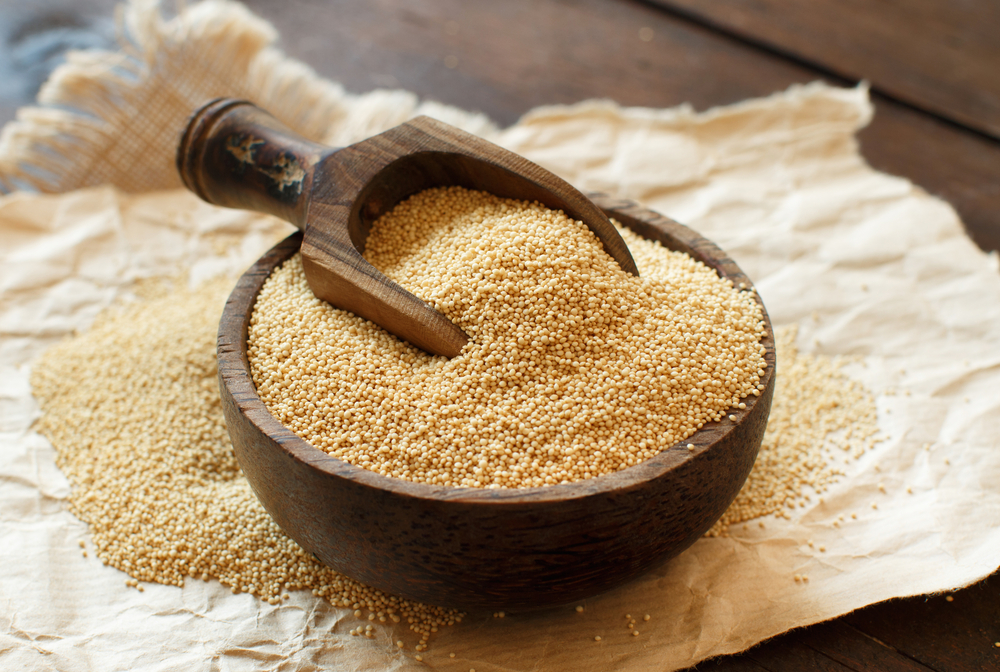
Amaranth is an ancient grain that provides about 9 grams of protein per cooked cup. Like quinoa, it is a complete protein, containing all nine essential amino acids. Amaranth has a nutty flavor and can be used in place of rice, oats, or other grains in many recipes. It’s also high in fiber, iron, and magnesium, which contribute to overall health and energy levels. Its versatility makes it an excellent addition to soups, porridges, or baked goods for an extra boost of protein.
Pumpkin Seeds

Pumpkin seeds, or pepitas, contain around 7 grams of protein per ounce, making them a perfect snack for those looking to increase their protein intake. They’re also rich in healthy fats, magnesium, and zinc, which support heart health and immune function. Pumpkin seeds can be eaten raw, roasted, or added to salads, granola, or baked goods. Their crunchy texture and nutty flavor make them a popular topping for everything from soups to yogurt bowls. These seeds are an easy, tasty way to add protein and other essential nutrients to your diet.
This article originally appeared on RetailShout.
More From RetailShout
15 Foods You Can Save Big On by Making at Home
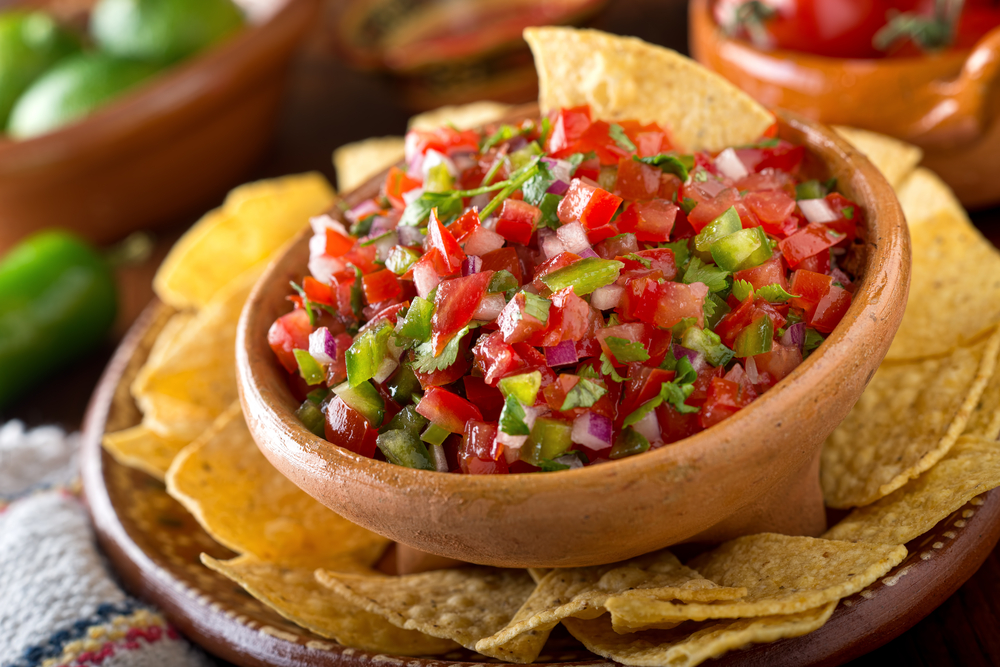
Eating out can be a fun treat, but it often comes with a hefty price tag. Many popular foods can be made at home for a fraction of the cost, without sacrificing flavor or quality. Read More.
15 Superfood Powders to Add to Your Smoothies
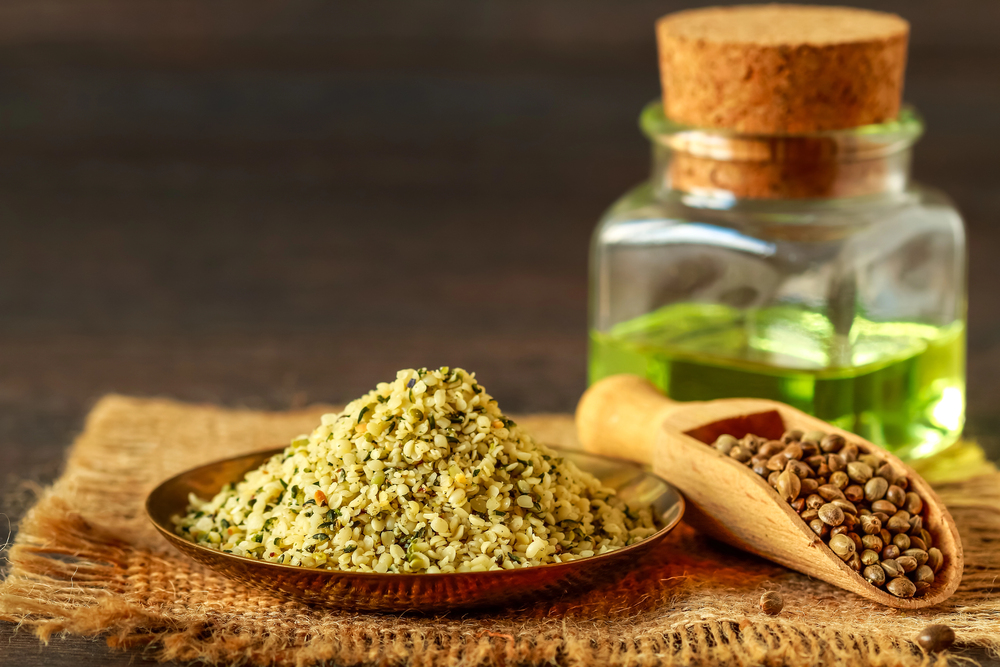
Adding superfood powders to your smoothies is an easy way to boost their nutrition without much effort. These nutrient-dense powders pack a punch, offering everything from antioxidants to vitamins and minerals. Read More.
15 Aldi Breakfast Items to Start Your Day Off Right
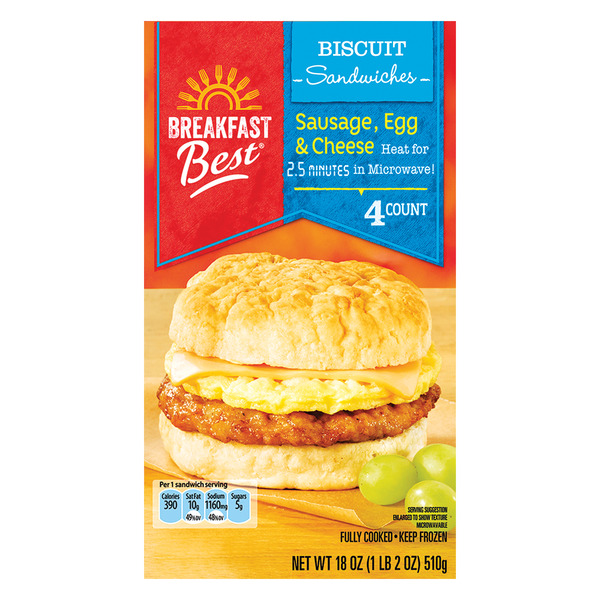
Mornings are hard enough without the added stress of deciding what to eat. Maybe you have to get the kids out the door, juggle that first Zoom meeting, or simply resist the snooze button for the third time. Read More.

